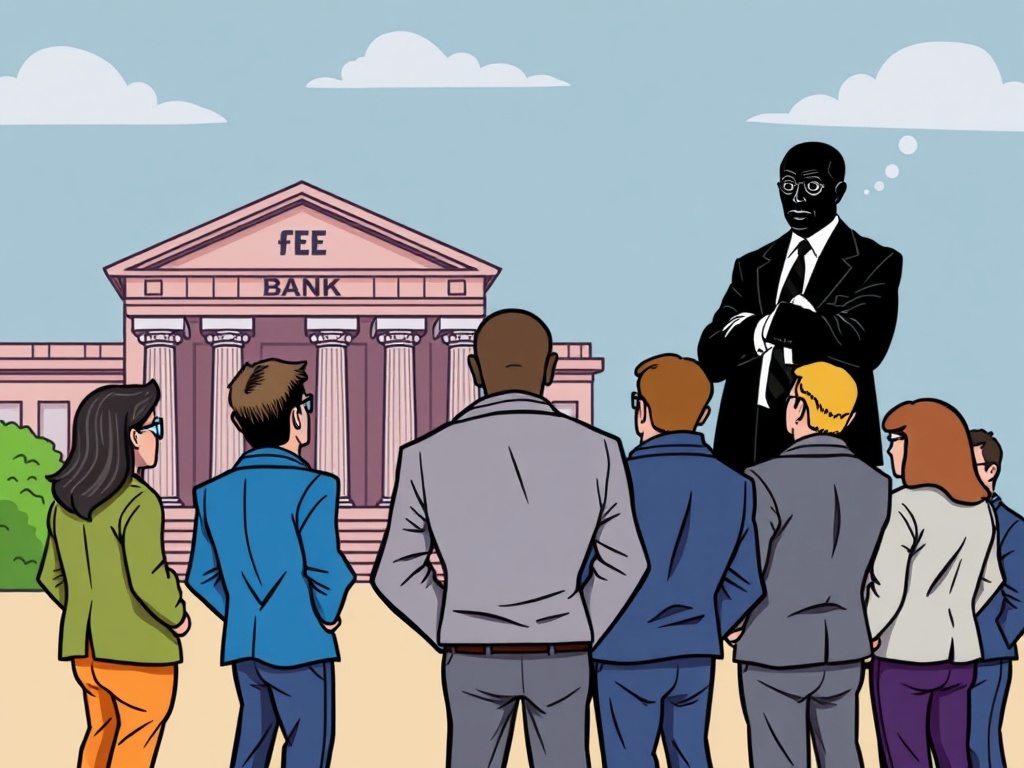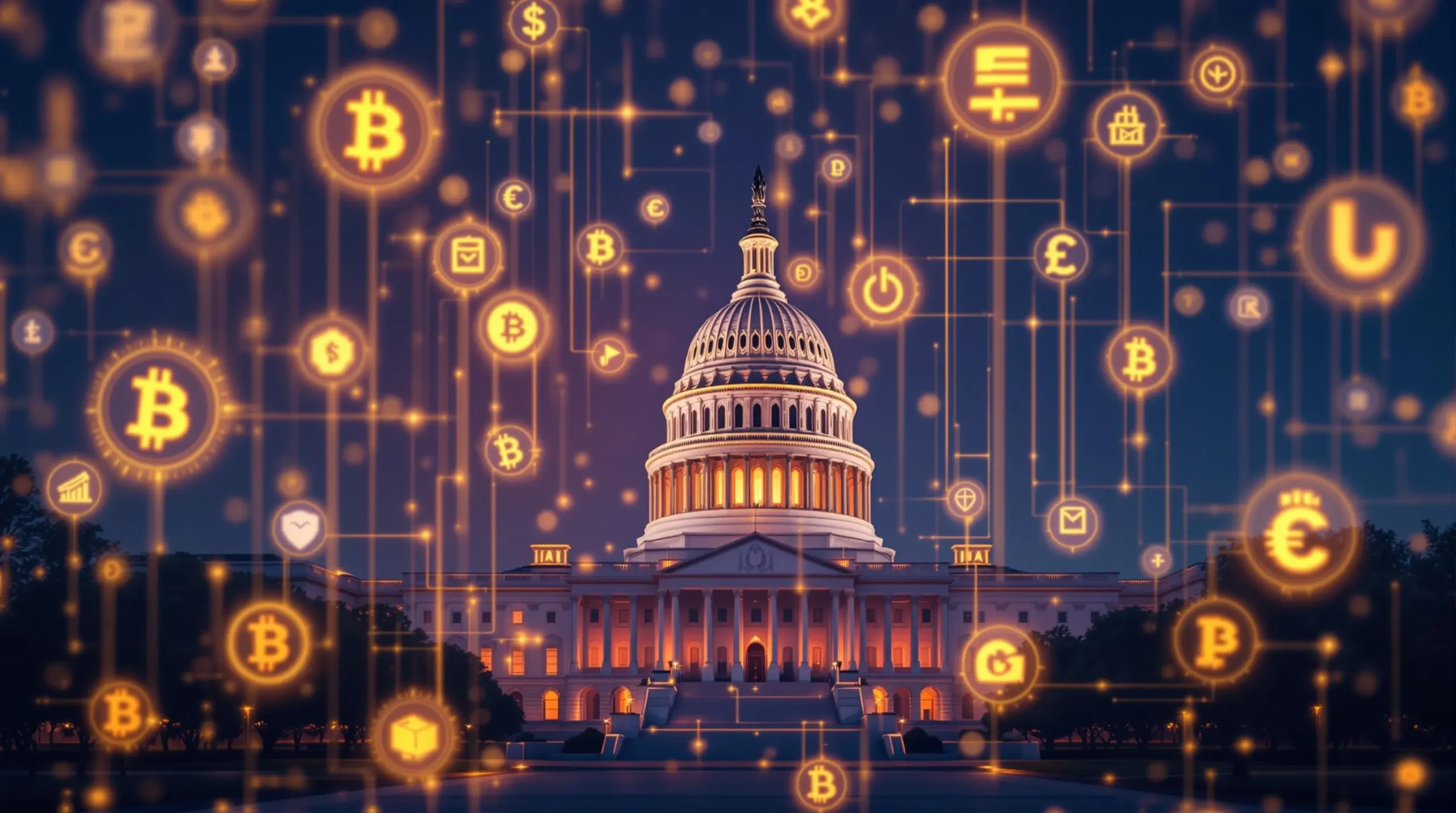BitcoinWorld

Urgent Call: U.S. Crypto Leaders Challenge Bank Data Fees Under Trump Administration
The landscape of digital finance is constantly evolving, and a significant challenge has recently emerged concerning how consumers access their own financial information. Recently, prominent U.S. crypto and fintech executives have sounded the alarm, directly appealing to the Trump administration to intervene in a critical policy matter: the imposition of bank data fees. This move highlights a growing tension between traditional banking institutions and the innovative sectors pushing for greater financial fluidity.
Why Are Bank Data Fees a Problem for Innovation?
At the heart of the issue are the fees that traditional banks charge for allowing third-party applications to access customer financial data. While this might sound like a technicality, its implications are vast, particularly for consumers who wish to connect their bank accounts to various financial products and services offered by fintech and crypto platforms. The concern is that these fees act as a significant barrier, potentially stifling innovation and limiting consumer choice.
- Hindered Connectivity: Fees can make it expensive or even impossible for apps to integrate seamlessly with bank accounts.
- Reduced Consumer Choice: If linking accounts becomes too costly, consumers might be prevented from using the financial tools that best suit their needs.
- Innovation Stifled: New startups, especially in the crypto and fintech spaces, rely on accessible data to build competitive products. Fees can make their business models unviable.
The Push for Free Customer Data Access
The core argument from the crypto and fintech sectors is straightforward: consumers should have free and unfettered access to their own financial data. This concept, often referred to as ‘Open Banking,’ promotes a more interconnected financial ecosystem where individuals have greater control over their information and how it is used. It enables a richer array of services, from budgeting apps to investment platforms, to offer personalized and efficient solutions.
Previously, the Biden administration had actively pursued policies aimed at making customer data access freely available. This initiative was part of a broader effort to foster competition and empower consumers within the financial sector. However, these efforts met strong resistance from the banking industry, which argued concerns over security, operational costs, and intellectual property. As a result, the proposed changes did not fully materialize, leaving the door open for continued debate and policy adjustments.
What Does the Trump Administration’s Stance Mean?
In a significant development, former President Trump has indicated that the current fee rules will remain in place until new guidelines are formally issued. This statement suggests a pause in the immediate push for free data access, creating uncertainty for fintech executives and U.S. crypto innovators who rely on this data. The delay could prolong the challenges faced by companies trying to build services that require direct integration with traditional banking systems.
This situation underscores the ongoing tension between established financial institutions and the burgeoning digital economy. While banks emphasize the costs and risks associated with data sharing, fintech and crypto firms highlight the consumer benefits and the need for a level playing field to foster innovation. The decision by the Trump administration will be crucial in shaping the future of financial connectivity.
Looking Ahead: The Future of Bank Data Fees
The ongoing discussion around bank data fees is more than just a regulatory skirmish; it’s a battle for the future of financial services. Will consumers truly own their data, or will it remain a commodity controlled by large institutions? The outcome of this debate will directly impact the growth trajectory of the U.S. crypto industry and the broader fintech landscape. For consumers, the ability to seamlessly link accounts to innovative products could mean better financial management, more competitive rates, and access to cutting-edge tools.
Key Takeaways:
- Advocacy: Crypto and fintech leaders are actively lobbying against bank data fees.
- Consumer Impact: Fees limit choices and access to innovative financial products.
- Policy Debate: The issue highlights a fundamental disagreement over data ownership and access.
- Future Implications: The decision on fees will shape the pace of financial innovation and consumer empowerment.
This evolving scenario requires close attention from anyone interested in the intersection of traditional finance and the digital economy. The ultimate resolution will define how easily consumers can leverage their own financial data to participate in the burgeoning world of decentralized finance and advanced fintech solutions.
FAQs on Bank Data Fees and Customer Data Access
Q1: What are bank data fees?
Bank data fees are charges imposed by traditional banks on third-party financial applications (like budgeting apps or crypto exchanges) that wish to access a customer’s financial data with their consent. These fees are for the technical infrastructure and processes involved in securely sharing this information.
Q2: Why are U.S. crypto and fintech executives concerned about these fees?
U.S. crypto and fintech executives argue that these fees hinder innovation and limit consumer choice. They believe that charging for access to customer-owned data makes it more expensive to develop and offer competitive financial products, preventing seamless integration and adoption of new technologies.
Q3: What does ‘customer data access’ mean in this context?
Customer data access refers to the ability of individuals to grant permission to third-party applications to securely view and utilize their financial information held by banks. This enables services like personalized financial planning, automated investments, and seamless transfers between different financial platforms.
Q4: How does the Trump administration’s stance affect the situation?
The Trump administration has stated that current fee rules will remain in place until new guidelines are issued. This means the immediate push for free data access has paused, creating uncertainty for fintech and crypto firms hoping for a swift change in policy to reduce operational costs and expand services.
Q5: What are the potential benefits of free customer data access for consumers?
Free customer data access could lead to a more competitive financial market, offering consumers a wider array of innovative products and services. This includes better budgeting tools, easier loan applications, personalized financial advice, and seamless integration with crypto platforms, ultimately leading to greater financial empowerment.
Q6: What is ‘Open Banking’ and how does it relate to this issue?
‘Open Banking’ is a concept where banks securely share customer data with third-party providers, with the customer’s consent. It’s directly related to this issue as it advocates for free and standardized access to customer data, aiming to foster competition and innovation in the financial services sector, which is precisely what fintech executives and U.S. crypto firms are pushing for.
If you found this article insightful, please share it with your network! Help us spread awareness about the critical discussions shaping the future of finance and how policies around bank data fees impact innovation and consumer choice. Your shares help empower more individuals with valuable information.
To learn more about the latest crypto market trends, explore our article on key developments shaping Bitcoin institutional adoption.
This post Urgent Call: U.S. Crypto Leaders Challenge Bank Data Fees Under Trump Administration first appeared on BitcoinWorld and is written by Editorial Team





